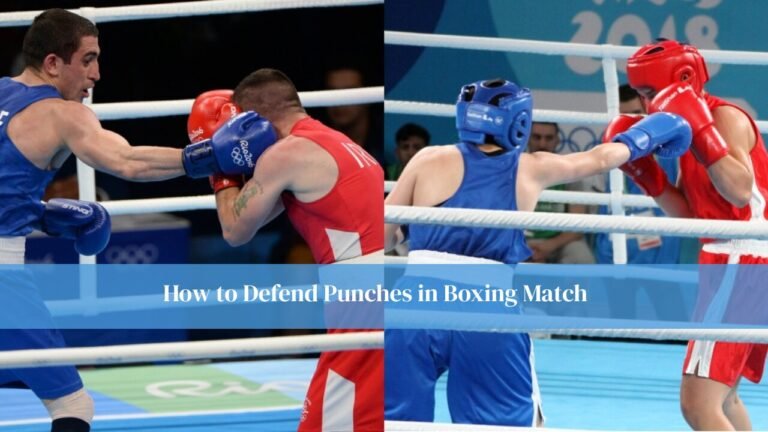Carbohydrates The Fuel Tank
Carbohydrates are the primary energy source for a boxer. When you throw a punch, move defensively, or engage in a flurry of combinations, your body taps into glycogen energy stored from carbohydrate intake. Without sufficient glycogen, fatigue sets in quickly, reflexes slow, and punches lose their explosiveness. That is why boxers who drastically cut carbs to lose weight often complain of sluggishness in the ring.
The quality of carbohydrates matters greatly. Whole grains such as oats, brown rice, and whole wheat pasta release energy gradually, keeping blood sugar stable and fueling longer sessions. Starchy vegetables like sweet potatoes and butternut squash provide sustained energy and essential vitamins, while fruits like bananas and berries offer quick, natural sugars perfect for post-training recovery. In contrast, refined carbs and sugary snacks provide only short bursts of energy followed by crashes that undermine stamina.
A typical training day for a professional boxer might involve consuming complex carbohydrates in the morning—such as oatmeal with fruit before sparring or conditioning sessions. This ensures the body has enough glycogen stores to sustain peak performance. Later in the day, lighter carbohydrate sources like rice or quinoa paired with lean protein help maintain energy without excess fat storage.
Protein Building and Repairing Muscles
Boxers rely heavily on their muscles not just for power but also for absorbing punches and maintaining endurance. After every intense workout, muscle fibers suffer microscopic tears that require protein to repair and grow stronger. Without adequate protein intake, recovery slows, injuries increase, and progress in strength and conditioning stalls.
Lean animal proteins such as chicken breast, turkey, fish, and eggs are staples in a boxer’s diet, offering complete amino acid profiles essential for muscle repair. However, many fighters also incorporate plant-based proteins like lentils, beans, tofu, and quinoa, which provide fiber and additional micronutrients. Protein timing is just as important as overall intake. Consuming protein-rich meals or snacks within 30–60 minutes after training accelerates recovery by providing amino acids when muscles need them most.
Sports nutritionists typically recommend between 1.4 and 2 grams of protein per kilogram of body weight daily for athletes, though exact amounts may vary based on training intensity and weight goals. For a 70-kilogram boxer, that equates to roughly 100–140 grams of protein per day, spread across multiple meals to optimize absorption.
Healthy Fats Sustaining Energy and Supporting Recovery
While carbohydrates and protein often take the spotlight, fats play an equally critical role in a boxer’s diet. They serve as a long-lasting energy source, particularly during lower-intensity training sessions or rest days, and are essential for hormone regulation, brain function, and joint health.
Sources such as avocados, olive oil, nuts, seeds, and fatty fish like salmon provide omega-3 fatty acids that reduce inflammation and support cardiovascular health. Unlike unhealthy trans fats found in fried foods, these healthy fats aid recovery by reducing muscle soreness and protecting joints from the strain of repetitive movement.
A balanced boxer diet usually derives around 20–30% of total calories from healthy fats. This ensures the body has a stable reserve of energy while keeping inflammation in check, something particularly important during fight camp when training volumes are at their peak.
Hydration and Recovery The Overlooked Essentials
Many fighters underestimate the role of hydration. Yet, even a two percent drop in body water can reduce endurance, decrease reaction times, and impair focus. Given the intensity of boxing training which often includes hours of sweating in hot gyms dehydration becomes a real risk.
Boxers are encouraged to drink two to three liters of water per day, with higher intakes on days involving long sparring sessions. Electrolytes, which replenish sodium, potassium, and magnesium lost through sweat, are particularly important during training camps. While commercial sports drinks are popular, natural options like coconut water or homemade electrolyte solutions can be healthier alternatives.
Recovery is another often overlooked component. Sleep, stretching, and active recovery strategies matter just as much as diet. However, post-training nutrition plays a pivotal role in determining how quickly a fighter can bounce back. A combination of carbohydrates and protein consumed shortly after exercise restores glycogen and accelerates muscle repair. For instance, a simple recovery shake blending whey protein, a banana, and almond milk can be both convenient and effective.
A Sample 7-Day Boxer Diet
Designing a boxer’s diet requires balance, variety, and consistency. A typical day might begin with complex carbohydrates and protein to fuel training, continue with nutrient-rich meals throughout the day, and end with lighter options that aid recovery.
For example, a boxer might start the morning with oatmeal topped with bananas, chia seeds, and a couple of boiled eggs. Mid-morning could include a protein smoothie blended with spinach, berries, and whey protein. Lunch could consist of grilled chicken breast with brown rice and steamed vegetables, followed by an afternoon snack of Greek yogurt with honey and walnuts. Dinner might feature baked salmon with quinoa and asparagus, and if training ran late, a light evening snack such as cottage cheese with pineapple could provide slow-releasing protein overnight.
Repeating this structure across the week, with variations in protein sources (turkey, lean beef, lentils) and carbohydrate choices (sweet potatoes, quinoa, whole wheat pasta), ensures both consistency and variety. While calorie amounts must be adjusted based on training loads, this model highlights how whole, nutrient-dense foods sustain performance.
Foods Boxers Should Avoid
Not all calories are equal, and certain foods actively harm performance. Processed junk foods like chips, candy, and fast food add empty calories that increase fat without offering nutritional value. Sugary sodas and energy drinks provide quick bursts of energy but lead to crashes and disrupt hydration. Excessive alcohol not only slows recovery but also affects reaction times, coordination, and sleep quality all detrimental to a boxer’s craft. Finally, fried foods high in trans fats promote inflammation, which delays recovery and increases the risk of injury.
Eliminating these foods is not simply about aesthetics or making weight, it is about preserving long-term health and maximizing athletic potential.
How Champions Eat Real-World Examples
Looking at how world-class fighters structure their diets gives practical insight into the principles outlined above. Anthony Joshua, for example, reportedly consumes 4,500 to 5,000 calories per day during training camp. His meals are packed with lean proteins, whole grains, and vegetables, ensuring that his massive energy demands are met without excess fat gain. Similarly, Manny Pacquiao has been known to consume large quantities of rice and lean meat, reflecting the carbohydrate-heavy diets common in Asia, which sustain long training hours.
What these fighters share in common is a commitment to consistency and discipline. Their diets are not filled with exotic superfoods but with wholesome, accessible ingredients eaten in the right proportions. The lesson here is that while supplements and expensive products can have their place, the foundation of a strong boxer diet is built on simple, whole foods consumed with consistency.
FAQs
Can a boxer follow a vegetarian or vegan diet?
Yes, but it requires careful planning. Plant-based diets can provide adequate protein through sources like lentils, beans, tofu, and plant-based protein powders. However, boxers must pay attention to nutrients such as vitamin B12, iron, and omega-3s, which may be harder to obtain without supplementation.
How many calories does a boxer need each day?
Caloric requirements vary depending on body weight, training intensity, and goals. Professional heavyweights may consume as many as 5,000 calories daily, while lighter amateur boxers may require closer to 2,500–3,000. The key is to match intake with expenditure while ensuring the quality of calories supports performance.
What should a boxer eat before a fight?
The pre-fight meal should be consumed three to four hours before stepping into the ring and should combine complex carbohydrates, lean protein, and a small amount of healthy fat. A typical option might be grilled chicken with rice and vegetables, which provides sustained energy without causing digestive discomfort.
Is weight cutting safe?
Extreme weight cuts are dangerous and have led to serious health incidents in combat sports. The safest strategy is gradual fat loss through clean eating and portion control, coupled with proper hydration management. Professional guidance from sports dietitians is strongly recommended for fighters competing in weight-specific divisions.
Do supplements really help?
Supplements can complement, but never replace, a solid diet. Protein powders, omega-3 capsules, and electrolyte mixes are commonly used by boxers, but they work best when paired with whole foods. Fighters should also be cautious about supplement quality and legality, as contaminated products can lead to failed drug tests.
Conclusion
A well-structured boxer diet is not about deprivation or gimmicks, it is about balance, precision, and discipline. The foods you eat determine the energy you bring to training, the resilience you show in recovery, and the sharpness you display in the ring. By prioritizing lean proteins, complex carbohydrates, healthy fats, proper hydration, and recovery strategies, boxers can perform at their best while safeguarding their long-term health.
Whether you are training for your first amateur fight or aspiring to professional ranks, remember that your diet is as much a part of your arsenal as your jab or footwork.




